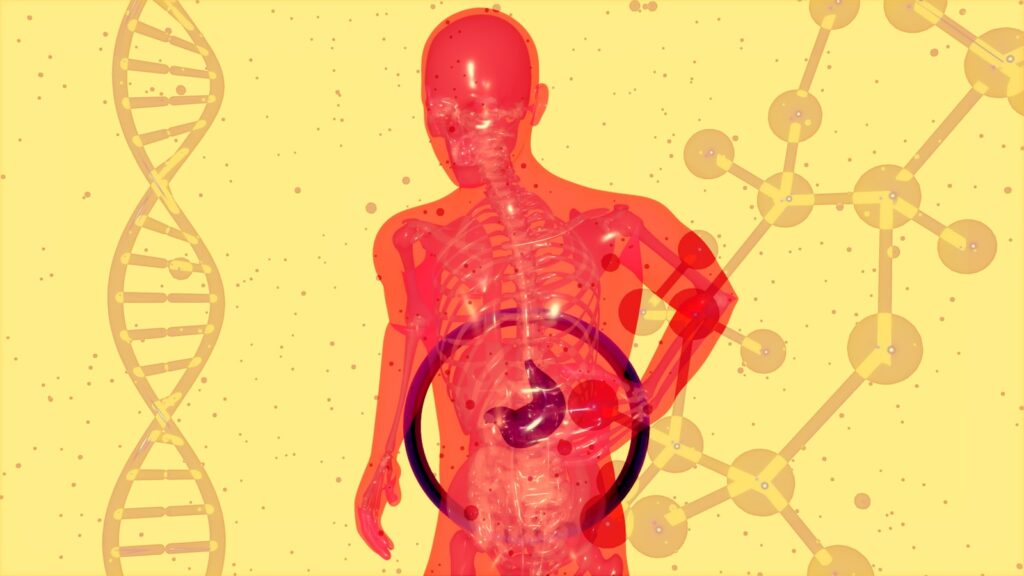Unraveling the Various Types of Muscle Tensions Caused By Trapped Emotions
This Post Contains Affiliate Links. Please Read Our Disclosure for Full Information.
Feeling tense or achy for no clear reason? It might surprise you to learn that many of our physical tensions have emotional roots. Often, stress, worry, or unexpressed feelings can turn into actual muscle pain or tightness. Our body and emotions are closely linked, so when we bottle up emotions, they can show up physically as a way of saying, “Hey, something needs attention!”
In this guide, we’ll walk through the most common types of muscle tension caused by trapped emotions and share ways to start releasing these aches and pains. If you’ve been carrying around unexplained muscle tension, these insights might help you connect the dots and start feeling lighter—emotionally and physically.
How Emotions Get “Stuck” in Our Muscles
Our emotional and physical systems are constantly talking to each other. When we’re stressed, worried, or dealing with something big, our body often reacts by tensing up. Think about it: when we feel stressed, our shoulders tighten, or when we feel upset, our stomach churns. If we don’t let these emotions out, they can start to build up and become actual physical tension.
Emotions like fear, anger, or sadness don’t just disappear if we ignore them—they tend to settle in places like our back, neck, or jaw, causing discomfort that lingers long after the original stressor is gone. This buildup can create a loop where emotional stress fuels physical tension, which in turn creates more stress, affecting our health and overall happiness.
Why Our Bodies Hold Onto Emotional Stress
When we experience intense emotions, especially the kind we try to brush off, they don’t just go away. Instead, our body goes into a bit of a “holding pattern.” This can mean anything from tightening our muscles to holding our breath. This response is part of how the body tries to protect itself, but over time, it leaves us feeling tense and achy.
In many cases, unresolved emotions also cause a spike in stress hormones, like cortisol, which triggers muscle contractions. These natural responses were designed for short bursts of stress (think: running from a threat), but when we live in a constant state of stress or tension, they start to wear on us. This is why something as simple as a stressful week can leave us with headaches, sore muscles, and an achy body.
Common Types of Muscle Tensions Caused by Trapped Emotions
Let’s dive into the specific muscle tensions linked to certain emotions and the unique “stories” these aches might be trying to tell us. Learning about these connections can give us clues about what our body needs to relax and feel better.
Neck and Shoulder Tension – The Weight of Responsibility
Ever notice your shoulders tensing up when you’re overwhelmed? That’s because the neck and shoulders are particularly sensitive to feelings of responsibility or feeling “weighed down.” It’s a natural response when we’re dealing with life’s pressures. Over time, though, this can lead to ongoing tightness and even pain in these areas. Recognizing these “shouldered burdens” is a good first step toward letting go.
Recommendation: For easy neck and shoulder relief, check out the TheraFlow Dual Foot Massager Roller. It’s great for targeting tension points in a way that feels like a mini-massage session. Available on Amazon.
Lower Back Tension – Financial Stress and Insecurity
Money worries and financial insecurity tend to live in the lower back. If you’ve ever felt a “heavy” back during a stressful month, you know what we’re talking about. Our body tends to reflect the pressure we feel about finances, with tension often collecting in the lower back, adding to the physical burden of money stress.
Jaw Tension – Suppressed Anger or Frustration
Clenching your jaw at night? It could be unresolved frustration. Many people clench or grind their teeth without even realizing it, especially when they’re holding in anger or irritation. Over time, this can lead to a sore or tight jaw and even issues with the jaw joint itself. Taking a moment to acknowledge these emotions can sometimes ease the physical grip as well.
Recommendation: For relief, try the Brux Relief Mouth Guard for clenching and grinding, especially if nighttime jaw tension is a problem. Check it out on Amazon.
Upper Back Tension – Self-Doubt and Feelings of Inadequacy
That hunched feeling in your upper back or around your shoulder blades? It often signals feelings of self-doubt or inadequacy. People who feel unsupported or deal with negative self-talk tend to tense up here, making it easy to feel physically as though they’re “shrinking in on themselves.”
Abdominal Tension – Anxiety and Worry
The stomach is incredibly responsive to our emotions, especially anxiety. You might feel a knot in your stomach during times of worry or stress, a natural reaction rooted in the connection between our gut and our brain. Long-term anxiety can tighten these muscles, causing digestive problems and persistent discomfort.
Chest Tightness – Heartache and Sadness
Ever feel a heaviness in your chest when you’re sad? That’s because emotions like grief or heartbreak often show up here. The chest muscles, particularly around the heart and lungs, can feel constricted when we’re dealing with unprocessed sadness. This can make breathing feel shallower, which can even intensify the feeling of sadness.
Recognizing Emotional Triggers to Release Tension
If you notice that certain situations bring about specific tensions, that’s a helpful clue! Maybe it’s jaw tension after a tough meeting or shoulder pain after a family visit. Journaling, taking a few minutes to relax, or talking with a friend can help you become more aware of these patterns. Once you identify the triggers, you’re in a better position to manage and release them.
Practical Techniques to Let Go of Muscle Tension from Emotions
Letting go of trapped emotions is about more than just relieving muscle pain—it’s about giving yourself the freedom to feel better, inside and out. Here are a few ways to help release that emotional and physical tension.
Deep Breathing
Taking a few deep breaths can work wonders. Not only does it calm the nervous system, but it also helps release the muscles that get tight when we’re stressed. Try breathing in deeply for a count of four, holding it, and then slowly exhaling for a count of four. Repeat a few times, and you’ll feel the difference.
Progressive Muscle Relaxation
This is a technique where you tense and then release each muscle group, which helps pinpoint and relax tension areas. Start from your feet, work up to your head, and feel the tension melt away as you go. This practice is particularly helpful for releasing hidden emotional stress.
Mindfulness and Meditation
Simply paying attention to what’s going on in your body and mind can be incredibly helpful. Meditation helps calm both the mind and body, allowing you to notice where you’re holding tension and gently let go. Even just a few minutes of mindfulness each day can make a big difference in how you feel.
Massage and Acupressure
Sometimes a massage or targeted acupressure is just what we need to relax our muscles and release stored emotions. The combination of touch and focused pressure on tense muscles can help clear both physical and emotional blockages, leaving you feeling refreshed.
The Many Benefits of Releasing Trapped Emotions
Releasing trapped emotions isn’t just about muscle relief—it’s also about emotional freedom. By taking steps to understand and let go of emotional stress, you’ll start to feel lighter, less stressed, and more at peace. This can lead to better sleep, improved mental clarity, and a renewed sense of well-being.
Final Thoughts: A Holistic Approach to Mind-Body Health
Understanding the types of muscle tensions caused by trapped emotions can be incredibly empowering. It reminds us that our physical and emotional health are deeply connected. When we take steps to address both, we’re setting ourselves up for a healthier, happier life. So, if you’re feeling tense or achy, take a moment to listen to what your body might be trying to tell you—relief could be closer than you think!









